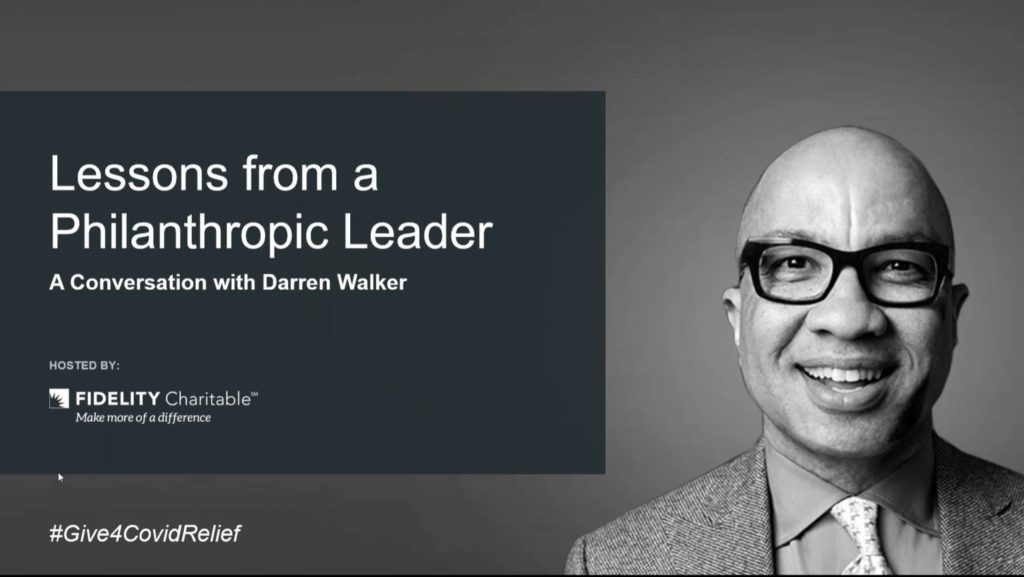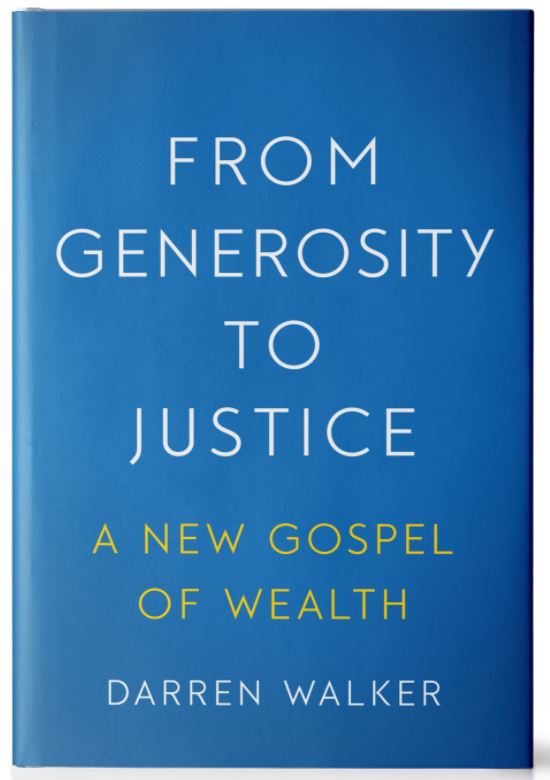
On August 20. 2020, African Girls Can listened to a conversation between Darren Walker, President of the Ford Foundation, and Pam Norley, President of Fidelity Charitable, the largest donor advised fund program in the US. Spurred by the COVID-19 pandemic and racial justice issues, Fidelity customers have given $4.4 Billion to 130,000 charities in over 1 million transactions, year to date. They have directed contributions toward food insecurity, homelessness, education and to protect the arts and environment.
Darren Walker, a former lawyer and investment banker, joined the Ford Foundation in 2010 and became its President in 2013. He grew up very poor in the South. He has said that his background “has given me an understanding of the need for investment in human capital and the centrality of private philanthropy making a difference in human lives.” Prior to Ford, he was with Rockefeller Foundation and led a recovery program after Hurricane Katrina.
Mr. Walker started with a quote stating “Never has the world experienced so much inequality…” and went on to say that it was by Andrew Carnegie in 1889. It was part of Carnegie’s “Gospel of Wealth” essay, where he justifies the concentration of great wealth by few – as long as they make plans to give most of it away. Warren Buffet and Bill and Melinda Gates have plans underway to do this today.
Mr. Walker then explained Martin Luther King’s point of view regarding wealth inequality. That is to say we must not overlook the economic injustice(s) that make philanthropy necessary in the first place. Justice and dignity must be part of modern-day philanthropy.
When we make charitable donations, we must consider the causes and origins. For instance, think about why do we have so much incarceration in the US? The cash bail system is one contributing factor and there are organizations that address this.
The power of proximity was another concept that Mr. Walker explained. We value credentialed expertise and knowledge. By doing this, we sometimes overlook the perspective of those in communities closest to the problem. We listen to the person with the PhD in anthropology, but not the African villager. It is so important to spend time being engaged.

COVID-19 has been immensely disruptive to the non-profit sector. Fundraising events are not happening, volunteers cannot serve etc. Non-profits are the third largest emloyer in the US economy.
At Ford Foundation, they put an equity lens on their grant making and fund organizations that are traditionally under resourced. (They will give to the Dance Theater of Harlem instead of the New York City Ballet, which already has a very strong foundation of support.) Traditionally, donors prefer to make non-infrastructure support and fund specific projects. However, these days, unrestricted gifts for general operating expenses are Mr. Walker’s number one wish for COVID era philanthropy.
In today’s crisis, charitable giving must be focused on social services and local communities. Long-term, we must shift to building bridges between communities. The fundamental challenge is what kind of democracy we want to have. We should direct funds toward voting initiatives and research on the long-term effects of COVID.
A question was asked about non-financial measures of success for non-profits. Mr. Walker recommended looking at diversity of its leadership. What does its Board and leadership team look like?
Mr. Walker believes in capitalism, but does not believe the type we have today is serving our democracy. There needs to be more shared prosperity and a dignified wage for essential workers.
Mr. Walker also believes that foundations that give away money are in the business of hope. He concluded by reminding us of the Langston Hughes poem, “Let America Be America Again,” which is about America’s potential to deliver on its ideals. A stanza of that poem reads:
O, yes,
I say it plain,
America never was America to me,
And yet I swear this oath—
America will be!
 In 2019, Darren Walker published a book, “From Generosity to Justice – A New Gospel of Wealth.” It “convenes some of the most important voices in philanthropy to ask and offer answers to a vital question: If there’s a continuum between generosity and justice, how do we push our work closer to the latter?”
In 2019, Darren Walker published a book, “From Generosity to Justice – A New Gospel of Wealth.” It “convenes some of the most important voices in philanthropy to ask and offer answers to a vital question: If there’s a continuum between generosity and justice, how do we push our work closer to the latter?”

